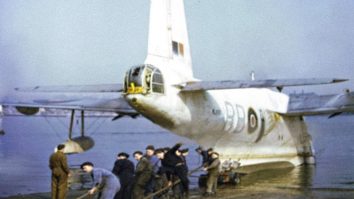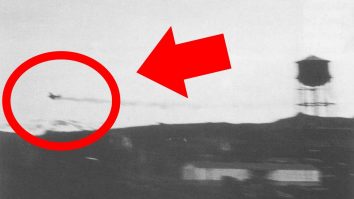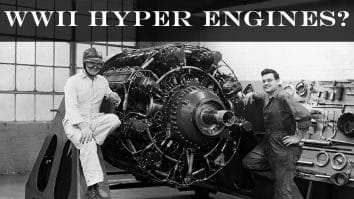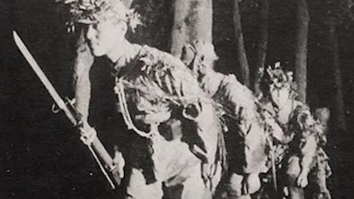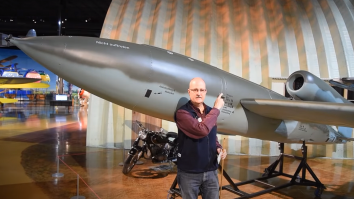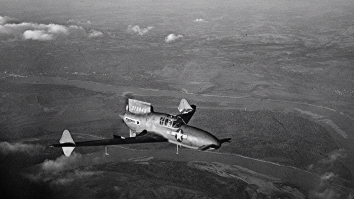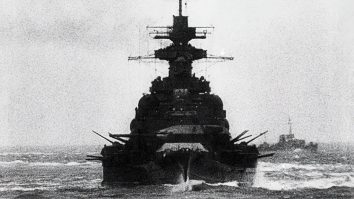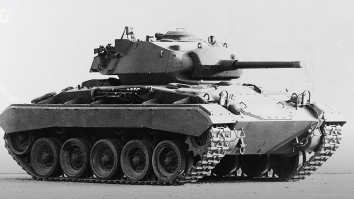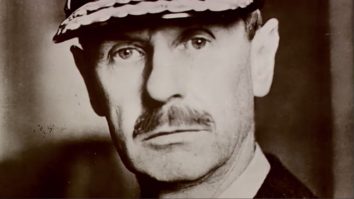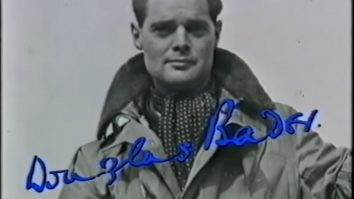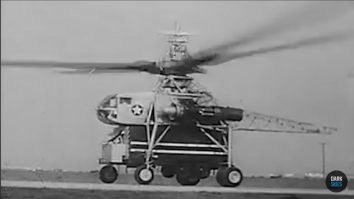The Short Brothers’ Short Sunderland was a flying boat patrol bomber that could carry 4,950lbs of bombs, mines, and depth charges. Here is how and why this flying boat earned the respect of Germany in WWII. Fuselage Design Its interior was divided into two decks – the lower containing bunks, a pressure stove, a machine […] More
On The Radar America knew about the Mitsubishi A6M Zero in the summer of 1940 after they easily picked off outdated Chinese biplanes. Flying Tigers’ leader, Claire Lee Chennault, warned the West about the fighter yet they paid little to no attention. After all, the West was confident that Japan’s technology was highly inferior. First […] More
In 1930, the US Army and Navy looked for an engine that could meet or exceed a benchmark of 1hp per cubic inch. Back then, only racing engines could achieve this benchmark, but these four engines tried their best to achieve that goal: Chrysler XI-2220 Chrysler was adamant that their inverted V-type 16-cylinder engine would […] More
Peaceful At First In early 1944, Iwo Jima was viewed as a remote and boring place to be assigned as a soldier. No fighting was involved since the Japanese Navy and Air Force controlled the islands and the waters nearby. The only real threat at that time was the absence of clean, drinkable water. Increasing […] More
Kevin from Air Zoo gave us a technical tour of the world’s first operational cruise missile. Here are some interesting facts about the V-1 Flying Bomb: 1. The nose has a little spinner Its spinner is an air log that measures the distance the V-1 has flown and is connected to a counter unit with […] More
Experimental Interceptor In late 1939, the USAAC sought out a design that specifically called for unconventional designs. Curtiss-Wright’s entry for the proposal was the XP-55 Ascender – or “Ass-ender,” as some would call it. Peculiar Airframe It had a rear-mounted engine driving an ejectable pusher propeller. Meanwhile, the rear-mounted wings were swept-back and had vertical […] More
In 1941, British forces failed to enforce a blockade on the English Channel, allowing a huge German fleet to move through even the narrowest sections. The failure of the bomber command to land a hit or the Navy to hit a single torpedo made headlines. Here’s how it went down: 1. Germany had limited maritime […] More
1. It was an interim solution When war broke loose in Korea, the US decided not to wait on the T42 medium tank still in development. Their solution was to use an existing M46 hull and combine it with a T42 turret. Though it was still new, officials decided that the improvements in firepower and […] More
Sir Hugh Dowding was the commander-in-chief of the RAF Fighter Command, and his leadership became a turning point during the Battle of Britain. Going Against the Tide In the Spring of 1940, Europe was collapsing under Nazi Germany. Air Chief Marshal Hugh Dowding was the commander-in-chief of Fighter Command for the Royal Air Force. France […] More
Douglas Bader was one of the most popular pilots of the RAF, well-known for his daring RAF raids and repeated attempts to escape as a prisoner of war during World War II. Here are the ten interesting facts about this legendary WWII pilot. 1. At the war’s end, Douglas Bader was cast as a hero […] More
Many Japanese soldiers of WWII are known to favor death over a dishonorable surrender. This is exactly what happened to these Japanese troops that crocodiles hunted down on Ramree Island. Taking Burma Back Burma fell under Japan, but in 1943, the tide of war changed and favored the Allied forces. Both Chinese and British forces […] More
The Hughes XH-17 Sky Crane was the first-ever helicopter project of the Hughes Aircraft Company. It featured a two-bladed primary rotor system with a diameter of 134 feet and holds the world record for the biggest rotor system. Out of Money The XH-17 was an ambitious project by the US Air Force. The idea was […] More


